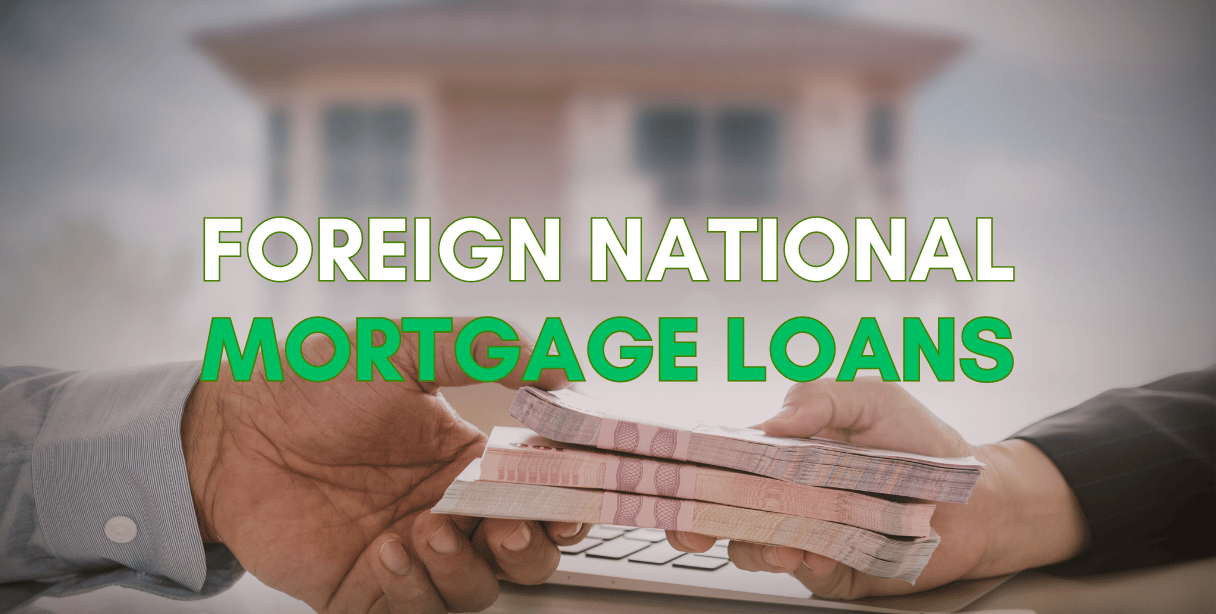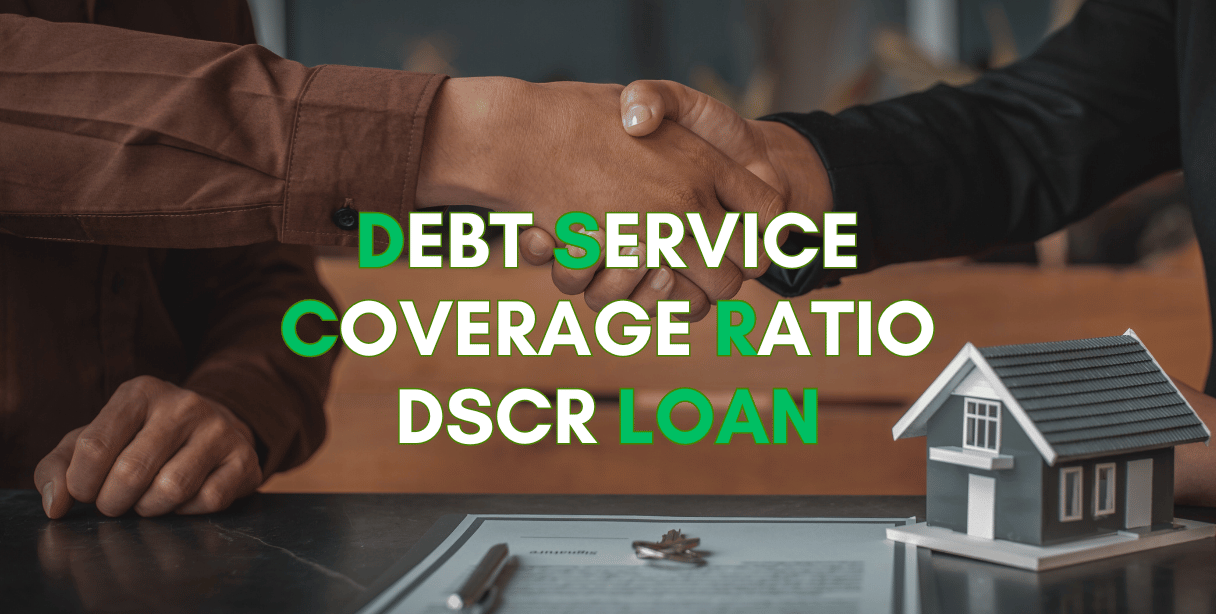Can Foreigners Get an Investment Loan to Buy Real Estate in the US?
If you’re a foreigner who wants to build a future for yourself in the US or send your children to study there, buying a home in the States can make your life that much easier. But even if you’re just looking for great investment opportunities abroad, investing in US real estate is one of the best options for generating long-term wealth.
However, property in the US isn’t cheap. But there are ways around that, and the easiest one is to get an investment loan for foreigners.
But can foreigners even get a loan to buy property in the US? What does the process look like? What conditions do you need to meet to secure a loan, and where should you look for one? Do you need a credit score to get an investment loan for foreigners? How high are the down payments for foreigners? These are just some of the questions we will answer in this comprehensive guide for US investment loan for foreigners.
But first, let’s start with the basics…
Can You Get An Investment Loan For Foreigners?
The good news is that you can get an investment loan for foreigners or a mortgage for a home in the US. In fact, the US has one of the most developed financial markets in the world — so much so that getting a real estate loan in the States as a foreigner may be easier than getting it in your home country. The bad news, however, is that getting one will be trickier than if you were a US citizen.
The entire US financial system revolves around credit score, which can be tricky for a foreigner to build. However, you can still get a loan as a foreigner, even without any credit score.
One of the biggest reasons is that banks and other financial institutions consider real estate a pretty secure investment, so they’re more willing to hand out mortgage loans than any other type of loan (even to foreigners). That is also why some loans these institutions give allow foreigners to transfer their credit score from their home country or don’t even require it.
Although the size of your down payment will depend on the type of loan you choose, in most cases, that amount will be 25% ($37,500 for a minimal loan). This amount can net you a loan of around $150,000, enough to buy a decent home in most parts of the US. Of course, if you want a bigger loan, you’ll need a higher down payment — this example is just a minimum with most loan types.

Why Invest in US Real Estate With an Investment Loan for Foreigners?
Some of the most famous real estate investors in America have built their multi-billion dollar empires by buying properties with a loan. And if you’re an aspiring investor, you should consider doing that too. Here are the five main reasons you should do that:
- Debt Incurred When Investing in Real Estate Is the So-Called “Good Debt” — Real estate investing is an industry in which someone else pays off your debt — tenants. Experienced real estate investors can optimize their cash flow to earn more monthly than they have to pay back the bank (or lender).
- Real Estate Investment Loan For Foreigners Is Always Tax-Free — The best part about investing with a loan is not having to pay taxes on it. Because the money never leaves the system, these loans are never taxed.
- Investing With a Loan Allows You to Buy Bigger Properties (And Earn More) — One of the easiest ways to scale a real estate business is not to purchase more properties but buy higher-end properties. The more valuable a property is, the higher the rent you can get. For instance, even if you have enough funds to buy a small house in the suburbs, getting a loan and purchasing a large home or a small residential unit will pay off more in the long run.
- Investing With a Loan Gives You Higher Depreciation — The more your property is worth initially, the higher its depreciation rate. And the higher the depreciation rate, the more you’ll save on taxable income.
- It’s the Easiest Way to Grow Your Wealth — Buying properties with a loan allows you to grow your investment portfolio and build generational wealth exponentially faster.
But how hard is it to get an investment loan for foreigners? It’s not a walk in the park, but it’s still easier than you might expect.
How Hard Is It to Get an Investment Loan For Foreigners?
As we mentioned above, getting a US investment or mortgage loan as a foreigner comes with a few hurdles. The reason is that foreigners are higher-risk clients for banks and other financial institutions. However, since real estate is one of the most secure investing options, they are often willing to compromise. The real estate is a secure investment, which is the reason why more and more lenders have decided to provide loans for overseas real estate investments.
That compromise, though, is not necessarily perfect for the investor, but it’s something they’ll need to accept. Here’s what you should expect when looking for a US investment loan for foreigners:
- You’ll have to pay a higher down payment (sometimes up to 40%);
- Your interest rate will be higher (by 1%–2%);
- You’ll need to prove your financial stability with something other than US credit score (e.g., your credit score in your home country)
But the most challenging thing will be to find a bank or lender to get an investment loan for foreigners. Although some institutions will work with foreigners, you’ll need to do a lot of digging to find them.
Alternatively, you could get help from someone who specializes in working with foreign real estate investors, like our team at NRI. Our team is partnered with dozens of US financial institutions and has helped hundreds of foreign investors and first-time home buyers like you secure a mortgage loan with the least hassle.
All You Need To Apply For Investment Loan For Foreigners In The USA
Although different types of loans may require specific documentation, you will need the following for most (if not all) of them:
- Proof of Identity — This document may come in the form of a passport, international driver’s license, or ID.
- A Valid US Bank Account — Getting a loan as a foreigner will always require a US bank account. If you plan to move to America, you can secure a loan with a personal bank account. But we advise providing a business bank account if you’re an investor.
- Proof of Income — This document may come in the form of tax returns for the past two years alongside salary information. If you’re an investor, you must provide identical information for your US LLC alongside a cash flow report.
- An ITIN or SSN — If you have US citizenship or a visa that comes with an SSN, you can provide that for tax purposes. If not, you’ll need to get yourself an ITIN instead.
- Proof of Creditworthiness — If you have no credit score, you’ll often need to provide credit references from your country.
- A US Visa — Most banks will also require you to provide a visa to be eligible for a loan. Some of the visas they accept are B-1, B-2, H-2, H-3, I, J-1, O-2, P-1, and P-2 visas.
- Funds for the Down Payment and Extra Fees — Finally, you’ll need to pay your down payment in full, as well as other fees (appraisal fee, loan origination fee, etc.). These fees can amount to several thousands of dollars for some loans.

7 Types of Real Estate Investment Loans For Foreigners
After you collect all the necessary documentation and prepare the funds to cover all the fees, you’ll need to decide which loan to take. Considering that the US has one of the best capital markets in the world, you’ll have many options. However, each of them comes with different requirements that might not suit everyone. That’s why choosing the right loan for your goals is essential. Here are the seven types of real estate investment loans you could take as a foreigner:
1. Conventional Mortgage Loans
Conventional mortgage loans are one of the best loan types for real estate investors. However, these are tricky to get as a foreigner for several reasons.
Firstly, conventional mortgage loans are government-backed, meaning they have many prerequisites, like a high credit score (620 minimum), employment history, and a great debt-to-income ratio (less than 40%). Few foreigners have access to an SSN, and even fewer have been able to build their credit scores. Still, if you are lucky to meet these requirements, conventional mortgage loans have some of the best terms for the investor out there.
Mortgage loans usually come with a 20% down payment and have lower interest rates than most other loans. The loan’s amount will depend on the property’s appraised value but can range anywhere from $150,000 to several million.
Pros:
- Investors with a credit score above 740 can get the most favorable loan terms and the lowest interest rates;
- The interest rates for these loans are usually locked and don’t change with time;
Cons:
- Conventional mortgage loans require high credit scores;
- Borrowers’ financials go through deep scrutiny before the lenders even consider approving their loans;
- The amount of the loan is based on your property’s appraised value, which leaves little to no extra funding for potential renovations;
2. Hard Money Loans
Hard money loans are usually issued by private lenders (i.e., private money loans) or companies and put up the property you plan to buy as collateral. These loans are typically desirable when you need funding quickly, as they require much less paperwork than most traditional loans. However, this speed comes with steeper down payments and higher interest rates. That makes these loans most effective for house-flipping strategies.
The best part about hard money loans is that investors can get them even with a poor (or without) credit history. However, you will need to provide the purchased property as leverage and will also have higher interest rates the worse your credit history is (usually 10%–20%). That’s why these loans are better suited for experienced investors since they come with much higher risk.
Pros:
- The property’s appraisal value is much more important for this type of loan than the borrower’s creditworthiness;
- Investors can take out these loans quite quickly compared to other traditional loans;
- These loans are particularly effective for house flipping;
Cons:
- These loans require you to put your property up as collateral;
- Hard money loans come with higher down payments and steeper interest rates;
- Investors must usually repay these loans within a few months or years instead of decades (like conventional mortgage loans);
- These loans are generally considered high-risk, making them more suited for experienced investors than beginners;
3. No-Doc Mortgage Loans
No-doc mortgage loans are a faster and more efficient alternative to conventional ones, as they require no proof of income, assets, or employment history. However, these loans are even harder to get for foreigners since they require over 700 credit score. Still, if you meet these requirements and need quick funding, no-doc mortgage loans are a great choice.
These loans come with higher down payments (30%–40%) and slightly steeper interest rates, though, but their terms are more flexible than conventional mortgage loans.
Pros:
- These loans are an excellent way to finance your real estate quickly if you lack the necessary documentation;
Cons:
- No-doc mortgage loans require a high credit score;
- Down payments on these loans are a bit higher than on conventional mortgage loans;
- Most no-doc mortgage loans have steeper interest rates;

4. Commercial Loans
Commercial loans are specific to commercial real estate and are issued by banks and other financial institutions. These loans are particularly suitable for financing commercial properties like office buildings or warehouses. Since these loans are usually handed out to real estate investors or companies, they come with higher interest rates than most other loans.
But likely the biggest downside to commercial loans is that they require you (or your company) to undergo strict financial analysis, and their value is based on the appraised value of the property you’re buying. So unless you’re going into these loans with extra funding, you may have difficulty financing the necessary furnishings or property improvements once you purchase it.
Pros:
- Commercial loans are tailored for buying commercial real estate properties;
- Best for investors who purchase or refinance office spaces or warehouses;
Cons:
- Commercial loans come with higher interest rates;
- These loans require you to undergo an in-depth financial analysis before being approved;
5. Portfolio Loans
Portfolio loans are handed out by lenders who keep them on their own balance sheets instead of selling them. These loans are typical for real estate investors with multiple properties looking to finance further investment projects and value flexibility. The worst part about portfolio loans is that their interest rates are variable but offer more flexible conditions than other loan types. So if you’re a seasoned investor with several properties already, it’s worth considering these.
Pros:
- Portfolio loans offer flexible financing options;
- Great for investors who already own a few properties and are looking to refinance them;
Cons:
- These loans have variable interest rates, which means they may rise over the years;
- Some portfolio loans may require higher down payments;
6. Home Equity Loans
Home equity loans are specific loans that require you to put an existing property up as collateral. The size of these loans depends on the appraised value of your property and is only suitable for investors who already own a home. Using these loans is a bit risky unless you’re sure you can keep up with the interest rates since you can lose your only property if you can’t. But the risk is significantly smaller if you’re a seasoned investor with multiple homes in your portfolio.
The biggest downside to home equity loans is that they require a high credit score and an excellent loan-to-value ratio. On top of that, they reduce your property’s actual home equity since they come with a lien on the property. That’s why you should thoroughly evaluate the risk of these loans and always weigh the offers from different lenders if you decide to go through with it.
Pros:
- These loans allow you to leverage an existing property to gather funding for another investment;
- Home equity loans are a relatively safe option for investors with multiple properties in their portfolios;
Cons:
- These loans are considered high-risk since you must put an existing property up as collateral;
- Home equity loans come with a lien on your property, reducing its equity;
- They require a high credit score;
7. DSCR Loans
A DSCR or Debt Service Coverage Ratio loan is a loan specific to real estate investors, as it relies on positive cash flow generated by the property to pay itself off. You will only be eligible for this loan if your property earns a stable income. On the other hand, you, as a borrower, will also need to be aware of DSCR loan pros and cons.
Lenders use this when evaluating whether to give you a DSCR loan. However, the good news is that you won’t need an SSN or too high credit score for this loan. That makes DSCR loans one of the best options for foreign real estate investors.
When applying for these loans, keep your loan-to-value ratio under 75% to have the best odds of securing the loan with a good interest rate. The down payments for most DSCR loans are between 25% and 30%.
Pros:
- DSCR loans won’t require extensive documentation and high credit score since they rely on the property’s cash flow as a guarantee;
- These loans aren’t limited to a single property, which leaves investors with a lot of flexibility;
Cons:
- DSCR loans come with higher risk, so it’s best to use them only if you’re an experienced investor;
- DSCR loans are often not as rich as other types of loans, making them fall short if you’re aiming to buy a high-end property;

What Does the Application Of The Investment Loan For Foreigners Look Like?
Regardless of the type of loan you’re looking for, applying for one will look similar for all foreigners. In most cases, you must fly to the US and apply at a bank or a lender in person.
But before you can even get to that, you will need to do the following:
- Get all the necessary documentation ready;
- Open a US LLC (if you’re an investor);
- Open a US bank account (private or business);
- Scout out and negotiate the best loan offers for your needs.
This process can be time-consuming, especially for first-time investors or home buyers. Luckily, you don’t have to do all the grunt work yourself — a full-cycle agency specializing in working with foreigners like NRI can help you.
Our team can handle all the heavy lifting for you, from opening an LLC and a US bank account to getting an ITIN and sorting out the paperwork for your first loan. What might take you weeks, if not months, to do yourself, our team of experts can help you finish within days.
Still, if you enjoy the challenge and would rather handle the entire process yourself, the most important thing will be to find the right loan for your needs. Here’s how you should approach that…
What’s the Easiest Way To Get The Investment Loan For Foreigners?
As you have seen from the seven types of loans we covered above, not all are favorable for first-time buyers. Some have high credit score requirements, while others come with more risks or higher down payments, making them unsuitable for first-time buyers. Of all the loan options, international mortgage loans are likely the best option for first-time foreign investors or home buyers. Here’s where you can get one…
Where Can You Get an International Mortgage From?
When looking for an international mortgage loan, you can get them in three primary ways:
1. From a Bank
Getting a mortgage loan from a bank may take the least effort, but banks are famous for giving sub-optimal loan conditions for foreigners. Foreign investors and buyers are high-risk clients, so even if you do find a bank willing to give you a mortgage loan, it will likely come with a high interest rate and down payment. On top of that, banks will require extensive documentation even to consider you for a mortgage loan.
2. From a Private Lender
Getting a loan from a private lender is the easiest way to finance your property, as these loans require little documentation (if any). However, private lenders are much more challenging to find and always ask for high interest rates and down payments. This option is most suitable for seasoned investors who need funds quickly and have good connections in the US real estate market.
3. From a Mortgage Broker
Unlike banks and private lenders, mortgage brokers are the best option for the broadest range of investors. These institutions or individuals specialize in connecting investors with lenders for a small fee.
The most significant advantage of mortgage brokers is that you will have more options than going to a lender directly (or a bank). Instead of being on their turf, they compete against each other with their offers. Most often, you’ll get the best deals on the market through mortgage brokers, as they are more investor-oriented than the other two options.
Bank vs. Lender vs. Mortgage Broker: Which Is Better?
If you’re a foreigner looking for a mortgage loan, your best bet will be to go with a mortgage broker. The reason is that mortgage brokers give you the most options while maintaining reasonable fees and interest rates. Also, hiring a mortgage broker to find and vet different lenders will save you a lot of time you’d otherwise have to spend on market research.





